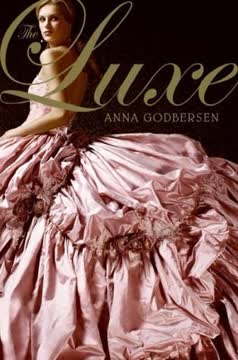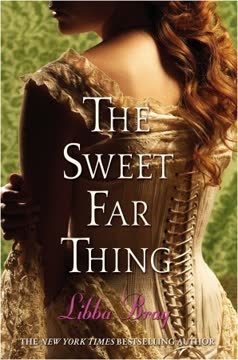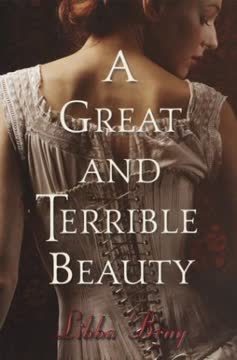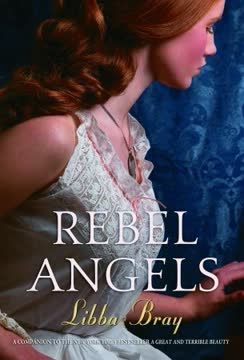Plot Summary
A Funeral's Somber Revelations
On a dreary October morning in 1899, New York's elite gather to mourn Elizabeth Holland, a paragon of beauty and virtue. Her untimely death leaves the city in shock, with whispers of mystery and scandal surrounding her demise. Among the mourners is Henry Schoonmaker, Elizabeth's fiancé, whose presence underscores the tragedy of a wedding that will never be. The funeral sets the stage for a tale of hidden secrets and societal pressures that will unravel the lives of those involved.
Secrets and Scandals Unveiled
Elizabeth Holland's seemingly perfect life is a facade. Her family, once prosperous, is now on the brink of financial ruin. Her engagement to the wealthy Henry Schoonmaker is a strategic move to save her family, yet her heart belongs to Will Keller, the family's coachman. Elizabeth's struggle between duty and desire creates a tension that foreshadows the tragic events to come, as she navigates the treacherous waters of New York society.
A Proposal and a Betrayal
At a grand dinner party, Henry Schoonmaker announces his engagement to Elizabeth, a union orchestrated by his father for political gain. Elizabeth, torn between her family's needs and her own desires, accepts the proposal, knowing it will save her family from financial despair. This engagement devastates Penelope Hayes, Elizabeth's best friend, who secretly loves Henry. The betrayal sets off a chain of events that will test friendships and loyalties.
Sisterly Bonds and Rivalries
Diana, Elizabeth's younger sister, is a free spirit who defies societal norms. She finds herself drawn to Henry, despite his engagement to Elizabeth, creating a dangerous love triangle. Diana becomes a confidante to Elizabeth, who is trapped in a loveless engagement. The sisters' bond is tested as they confront the choices that will shape their futures, highlighting the complexities of family loyalty and personal freedom.
A Maid's Unrequited Love
Lina, Elizabeth's maid, harbors a deep, unrequited love for Will Keller. Her heartache is compounded by Elizabeth's secret relationship with Will, a truth Lina discovers and keeps hidden. As Elizabeth's engagement unfolds, Lina grapples with her own desires and the limitations of her social standing. Her loyalty to Elizabeth is tested, and she must decide whether to reveal the secrets she holds or remain silent in her unrequited love.
A Society Wedding's Price
As wedding plans progress, Elizabeth is consumed by the weight of her decision. Her engagement to Henry is a strategic move to restore her family's fortunes, but it comes at the cost of her happiness. Elizabeth's internal struggle is mirrored by the societal pressures that dictate her actions. In a world where appearances are paramount, Elizabeth must navigate the delicate balance between duty and desire, knowing that her choices will have lasting consequences for herself and those she loves.
Penelope's Deceptive Friendship Unravels
Penelope Hayes, under the guise of friendship, confronts Elizabeth about her secret affair with Will Keller. Driven by jealousy and a desire to win Henry for herself, Penelope uses this knowledge to blackmail Elizabeth. She demands Elizabeth find a way out of her engagement to Henry without ruining her reputation. Elizabeth, caught between societal expectations and her own desires, is left with no choice but to comply, setting the stage for a confrontation that could change everything.
Henry's Conflicted Heart Revealed
Engaged to Elizabeth, Henry Schoonmaker finds himself drawn to her younger sister, Diana. Despite his engagement, Henry's heart belongs to Diana, and he struggles with the expectations placed upon him by his father and society. His internal conflict is exacerbated by his father's insistence on moving the wedding date up, forcing Henry to confront his feelings and the reality of his impending marriage. This chapter delves into Henry's turmoil as he grapples with duty versus desire.
Diana's Secret Love Affair
Diana Holland, aware of her sister's engagement to Henry, finds herself irresistibly attracted to him. Their secret meetings and shared moments reveal a deep connection, but Diana is torn between her loyalty to Elizabeth and her own burgeoning feelings. As their clandestine relationship intensifies, Diana must navigate the dangerous waters of love and betrayal, knowing that their affair could have devastating consequences for both families.
Elizabeth's Fateful Decision
Faced with the pressure of an impending marriage to Henry, Elizabeth makes a bold decision to follow her heart. She plans to escape with Will Keller, leaving behind the constraints of her social standing. Elizabeth's choice is a desperate bid for happiness, but it comes with the risk of scandal and the potential to destroy her family's reputation. This chapter explores Elizabeth's courage and the sacrifices she is willing to make for love.
A Society in Mourning
The news of Elizabeth Holland's disappearance sends shockwaves through New York society. As her family and friends gather to mourn, rumors swirl about the circumstances of her vanishing. The city is abuzz with speculation, and the pressure mounts on those left behind to maintain appearances. This chapter captures the collective grief and the societal expectations that continue to dictate the lives of the characters.
Diana's Guilt and Redemption
Struggling with guilt over her sister's disappearance and her own secret affair with Henry, Diana is consumed by remorse. However, a letter from Elizabeth reveals that she is alive and has chosen a new path with Will. This revelation lifts the burden from Diana's shoulders, offering her a chance at redemption and a future with Henry. The chapter concludes with Diana's renewed sense of hope and the possibility of love triumphing over societal constraints.
Characters
Elizabeth Holland
Elizabeth is the epitome of grace and beauty, yet her life is fraught with hidden turmoil. Engaged to Henry Schoonmaker to save her family's fortunes, she secretly loves Will Keller, the coachman. Her internal conflict between societal expectations and personal desires drives the narrative, leading to her untimely death.
Henry Schoonmaker
Henry is a wealthy and handsome young man, pressured by his father to marry Elizabeth for political gain. Though he appears carefree, his engagement to Elizabeth reveals a more complex character, caught between familial duty and personal freedom.
Diana Holland
Diana is Elizabeth's younger sister, known for her spirited nature and disregard for societal norms. Her flirtation with Henry complicates her relationship with Elizabeth, as she navigates her own desires and the constraints of her social standing.
Penelope Hayes
Penelope is driven by jealousy and a desire to secure Henry Schoonmaker for herself. Her cunning nature leads her to exploit Elizabeth's secret, using it as leverage to achieve her own goals. Penelope's actions reveal her willingness to betray friendships for personal gain, making her a formidable antagonist in the story.
Will Keller
Will's love for Elizabeth is genuine, and he represents the possibility of a life free from societal pressures. His relationship with Elizabeth is a closely guarded secret, and his departure with her signifies a new beginning for both characters.
Lina Broud
Lina is Elizabeth's maid, in love with Will. Her discovery of Elizabeth's secret relationship with Will adds to her heartache. Lina's loyalty to Elizabeth is tested as she grapples with her own desires and the limitations of her social standing.
Louisa Holland
Louisa is Elizabeth and Diana's mother, determined to restore the family's fortunes through Elizabeth's marriage to Henry. Her stern demeanor masks a deep concern for her daughters' futures, as she navigates the challenges of maintaining their social standing.
William Schoonmaker
Henry's father, William, orchestrates his son's engagement to Elizabeth to further his political ambitions. His desire for power and influence drives the narrative, as he seeks to secure his family's legacy through strategic alliances.
Isabelle Schoonmaker
Isabelle is Henry's stepmother, a former socialite who navigates the complexities of her new family with grace. Her presence adds a layer of intrigue to the Schoonmaker household, as she balances her role as a hostess with her personal ambitions.
Claire Broud
Claire is Lina's older sister, a maid in the Holland household. Her practical approach to life contrasts with Lina's romantic ideals, as she provides support and guidance to her younger sister amidst the challenges of their social position.
Plot Devices
Social Expectations and Class
The narrative is driven by the societal expectations and class distinctions of 1899 New York. Characters navigate a world where appearances and social standing are paramount, influencing their choices and relationships. The pressure to conform to societal norms creates tension and conflict, shaping the characters' fates.
Secret Relationships
Secret relationships, such as Elizabeth's love for Will and Diana's flirtation with Henry, add complexity to the story. These hidden connections create tension and drive the plot, as characters struggle to balance their desires with societal expectations.
Family Duty and Sacrifice
The theme of family duty is central to the narrative, as characters make sacrifices for the sake of their families. Elizabeth's engagement to Henry is a prime example, highlighting the tension between personal happiness and familial responsibility.
Betrayal and Revenge
Penelope's betrayal by Elizabeth and Henry's engagement ignites her desire for revenge. This plot device adds drama and intrigue, as Penelope's actions threaten to unravel the carefully constructed lives of those around her.
Financial Ruin
The Hollands' financial ruin is a catalyst for the events of the story. Elizabeth's engagement to Henry is a strategic move to restore the family's fortunes, highlighting the impact of economic pressures on personal relationships and societal standing.
Analysis
"The Luxe" by Anna Godbersen offers a vivid portrayal of the societal constraints and class distinctions of 1899 New York. Through the intertwined lives of its characters, the novel explores themes of duty, desire, and the sacrifices made for family and social standing. The narrative critiques the rigid expectations placed upon individuals, particularly women, and the impact of these pressures on personal happiness. The story's tragic elements underscore the consequences of living in a world where appearances are paramount, and true desires are often suppressed. Ultimately, "The Luxe" serves as a cautionary tale about the dangers of prioritizing societal expectations over personal fulfillment, offering a timeless reflection on the complexities of love, loyalty, and ambition.
Last updated:
FAQ
Synopsis & Basic Details
What is The Luxe about?
- Gilded Age Intrigue: The Luxe plunges readers into the opulent yet restrictive world of 1899 New York City society, where the Holland family, once prominent, faces imminent financial ruin. The story centers on Elizabeth Holland, the eldest daughter, whose engagement to the city's most eligible bachelor, Henry Schoonmaker, is meant to save her family's social standing and finances.
- Forbidden Love & Secret Desires: Beneath the glittering surface of high society, Elizabeth harbors a secret love for Will Keller, the family's coachman, forcing her to choose between duty and desire. Meanwhile, her rebellious younger sister, Diana, chafes against societal expectations and finds herself drawn to Henry, complicating an already precarious situation.
- Betrayal and Social Maneuvering: The narrative unfolds through multiple perspectives, revealing a web of secret affairs, jealous rivalries, and calculated betrayals, particularly from Elizabeth's ambitious best friend, Penelope Hayes, who desires Henry for herself. The story culminates in a shocking event that leaves society reeling and questions the true cost of maintaining appearances in a world obsessed with wealth and status.
Why should I read The Luxe?
- Immersive Historical Setting: Readers are transported to the lavish, yet suffocating, Gilded Age of New York, offering a rich backdrop of ballrooms, grand mansions, and strict social codes that dictate every aspect of life. The novel excels in its detailed descriptions of fashion, etiquette, and the stark class divides, making it a captivating read for fans of historical fiction and period dramas.
- Complex Character Dynamics: The story delves into the psychological depths of its characters, exploring themes of love, sacrifice, ambition, and betrayal. Each character, from the dutiful Elizabeth to the rebellious Diana and the manipulative Penelope, grapples with internal conflicts and external pressures, creating a compelling and emotionally charged narrative.
- Twists and Turns: Beyond the surface glamour, The Luxe is a page-turner filled with unexpected plot twists and moral ambiguities. It challenges readers to question appearances and delve into the hidden motivations of its characters, promising a thrilling journey through scandal and secrets that will keep you guessing until the very end.
What is the background of The Luxe?
- Late 19th Century New York: The novel is set in New York City during the Gilded Age (specifically 1899), a period characterized by immense economic growth, rapid industrialization, and stark social stratification. This era saw the rise of new money challenging old aristocratic families, creating a rigid social hierarchy where wealth, lineage, and reputation were paramount.
- Societal Expectations and Etiquette: The cultural backdrop emphasizes strict social codes, elaborate etiquette, and the importance of "appearances" for high society women. Debutante balls, formal engagements, and carefully managed social calls were not merely leisure activities but crucial mechanisms for maintaining or improving one's family's standing, as explored in The Luxe themes.
- Economic Instability for Old Money: Despite the era's opulence, the story highlights the precariousness of old money families like the Hollands, who, without constant reinvestment or strategic marriages, could face financial ruin. This economic pressure drives many of the characters' desperate decisions, underscoring the theme of financial ruin in The Luxe.
What are the most memorable quotes in The Luxe?
- "It was the old New York way…the way of people who dreaded scandal more than disease, who placed decency above courage, and who considered that nothing was more ill-bred than 'scenes,' except the behaviour of those who gave rise to them." (Epigraph, Edith Wharton): This quote, from Edith Wharton's The Age of Innocence, perfectly encapsulates the suffocating societal pressures and fear of scandal that define the world of The Luxe, setting the stage for the characters' struggles against rigid expectations.
- "Your father would have wanted you to think of your family before yourself, Elizabeth. It is what our kind of people have always done." (Louisa Holland, Chapter 36): This stark declaration from Mrs. Holland reveals the core of Elizabeth's tragic dilemma, highlighting the immense burden of family duty and sacrifice placed upon her and the generational expectations of her class. It underscores the novel's central conflict between personal desire and familial obligation.
- "You are more alive than anyone I know." (Henry Schoonmaker, Chapter 39): Henry's whispered confession to Diana in the greenhouse is a pivotal moment, revealing his true feelings and the depth of his attraction to her rebellious spirit. This quote contrasts sharply with his perception of Elizabeth as "all manners" and emphasizes Diana's vibrant, unconventional nature, a key aspect of Diana Holland's character analysis.
What writing style, narrative choices, and literary techniques does Anna Godbersen use?
- Multi-Perspective Narrative: Godbersen employs a shifting third-person omniscient point of view, rotating between key characters like Elizabeth, Diana, Penelope, Henry, and Lina. This narrative choice allows for a comprehensive exploration of their individual motivations and secrets, enriching the character analysis in The Luxe and building suspense as readers piece together the full picture.
- Rich, Evocative Prose: The writing style is characterized by lush, descriptive language that vividly brings the Gilded Age to life, from the "frosted glass dome ceiling" of the Hayes ballroom to the "heavy perfume of the hundred or so bouquets" at the Holland home. This sensory detail immerses the reader in the opulent yet often stifling atmosphere of high society.
- Foreshadowing and Dramatic Irony: The novel masterfully uses foreshadowing, most notably in the prologue detailing Elizabeth's funeral, to create a sense of impending doom and mystery. Dramatic irony is also prevalent, as characters' public personas often starkly contrast with their private thoughts and actions, highlighting the pervasive theme of secret relationships in The Luxe and the deceptive nature of appearances.
Hidden Details & Subtle Connections
What are some minor details that add significant meaning?
- The Vermeer Painting's True Ownership: The Vermeer painting, depicting two girls reading, is initially presented as Elizabeth's cherished possession, a gift from her father. However, Diana later reveals it was always intended for her, symbolizing their father's deeper understanding of Diana's intellectual curiosity and Elizabeth's eventual realization of her own self-importance, adding a layer to Elizabeth Holland's character analysis.
- Henry's Embroidered Initials (HWS): Henry's meticulous habit of having his initials embroidered on his hat ribbon and cuff links (Chapter 9) subtly highlights his aristocratic background and perhaps a touch of vanity, but also his inherent self-possession. This detail contrasts with his later, more disheveled appearance when visiting Diana, suggesting a shedding of his public persona in her presence.
- Lina's "Ugly Black Dress": Lina's constant black dress, described as "unflatteringly tight" (Chapter 1) and "ugly" (Chapter 27), is more than just a maid's uniform. It symbolizes her constrained social position and her simmering resentment, a stark visual contrast to the elaborate gowns of the Holland sisters, emphasizing the rigid class distinctions in The Luxe.
What are some subtle foreshadowing and callbacks?
- Elizabeth's Corset as a "Steel Trap": Early in the novel, Elizabeth feels her corset "horribly constricting" and realizes her life "had all the charm of a steel trap" (Chapter 1). This seemingly fleeting thought subtly foreshadows her feeling trapped by her engagement and societal expectations, ultimately leading to her desperate act of escape and "death," a key element of The Luxe plot analysis.
- Will's "Montana/California" Dream: Will's repeated mentions of moving out West to Montana or California (Chapter 6) initially seem like a romantic fantasy. This dream, however, foreshadows his eventual departure and Elizabeth's decision to follow him, representing a tangible escape from the suffocating confines of New York society and a pursuit of genuine freedom.
- Diana's "Nothing to Lose" Revelation: After learning of her family's financial ruin, Diana feels "delight" and realizes she has "nothing to lose" (Chapter 10). This early reaction foreshadows her increasing boldness and willingness to defy conventions, including her secret affair with Henry, setting her apart from Elizabeth's more constrained approach to their family's crisis.
What are some unexpected character connections?
- Lina and Tristan Wrigley's Encounter: Lina's drunken night out leads her to Tristan Wrigley, the Lord & Taylor salesman (Chapter 35). This seemingly minor interaction is crucial, as Tristan later becomes involved in the events surrounding Elizabeth's "death," revealing a hidden network of connections between different social strata and underscoring the pervasive nature of secrets and manipulation in The Luxe.
- Henry's Shared Disdain with Diana: While Henry is engaged to Elizabeth, his conversations with Diana reveal a shared, unspoken disdain for the superficiality of their social world and the expectations placed upon them (Chapter 15, 33). This intellectual and emotional connection, rather than just physical attraction, forms the foundation of their forbidden romance and highlights Henry's deeper character motivations.
- Isaac Phillips Buck's Role as a Manipulator: Isaac, initially presented as Penelope's sycophantic companion and a "tastemonger" (Prologue), is later revealed to be a key accomplice in Penelope's schemes, particularly in getting Henry drunk to miss the Dewey ball (Chapter 26). His seemingly harmless social role masks a cunning and manipulative nature, making him a more significant player in Penelope Hayes's betrayal.
Who are the most significant supporting characters?
- Isaac Phillips Buck: More than just Penelope's confidant, Isaac is a shrewd social strategist and enabler of her schemes. His ability to manipulate events, such as ensuring Henry's absence from the Dewey ball (Chapter 26), makes him a crucial, if often overlooked, catalyst in the unfolding drama and Penelope Hayes's motivations.
- Claire Broud: Lina's older sister, Claire, embodies the practical, loyal servant, contrasting sharply with Lina's ambition and resentment. Her quiet observations and attempts to guide Lina (Chapter 12, 23) provide a moral compass and highlight the stark realities of their social position, offering insight into the lives of the working class in The Luxe.
- Stanley Brennan: The Holland family accountant, Stanley Brennan, serves as a reluctant witness to Diana's rebellious behavior (Chapter 2) and is the bearer of the grim news of the Hollands' financial ruin to Mrs. Holland (Chapter 8). His anxiety and loyalty to the late Mr. Holland underscore the family's desperate situation and the weight of their secrets.
Psychological, Emotional, & Relational Analysis
What are some unspoken motivations of the characters?
- Louisa Holland's Fear of Destitution: Mrs. Holland's relentless pressure on Elizabeth to marry Henry is driven by a profound, unspoken fear of social and financial ruin, revealed only to Elizabeth in Chapter 36. Her stern demeanor and focus on appearances mask a deep-seated anxiety about losing everything, making her actions a desperate attempt to preserve her family's legacy.
- Penelope Hayes's Deep Insecurity: Beneath Penelope's outward confidence and ambition lies a profound insecurity, particularly regarding her social standing as "new money" and her rivalry with Elizabeth. Her desire to "win" Henry and her extreme reaction to Elizabeth's engagement (Chapter 14, 38) stem from a need for validation and a fear of being overshadowed, fueling her manipulative tendencies.
- Henry Schoonmaker's Yearning for Authenticity: Henry's "louche lifestyle" and constant pursuit of pleasure (Chapter 4) are an unspoken rebellion against his father's rigid expectations and the superficiality of his class. His attraction to Diana, whom he describes as "more alive than anyone I know" (Chapter 39), reveals a deeper yearning for genuine connection and a life free from pretense, a core aspect of Henry Schoonmaker's character analysis.
What psychological complexities do the characters exhibit?
- Elizabeth's Self-Sacrifice and Buried Resentment: Elizabeth initially embraces her role as family savior, accepting a loveless marriage for duty. However, her internal monologues reveal a deep-seated resentment and a sense of being trapped, leading to her desperate act of faking her death. This complexity highlights the psychological toll of family duty and sacrifice and the suppression of personal desires.
- **Diana's Impulsivity
Review Summary
The Luxe is a historical fiction novel set in 1899 New York, described as "Gossip Girl meets Edith Wharton." Many readers found it entertaining, with drama, scandal, and beautiful descriptions of fashion and settings. However, opinions were mixed on character development and historical accuracy. Some appreciated the fast-paced plot and intriguing mystery, while others found it shallow and predictable. The book's cliffhanger ending left readers divided on whether to continue the series. Overall, it's seen as a guilty pleasure read for those who enjoy period dramas with modern sensibilities.
Luxe Series
Similar Books
Download PDF
Download EPUB
.epub digital book format is ideal for reading ebooks on phones, tablets, and e-readers.








